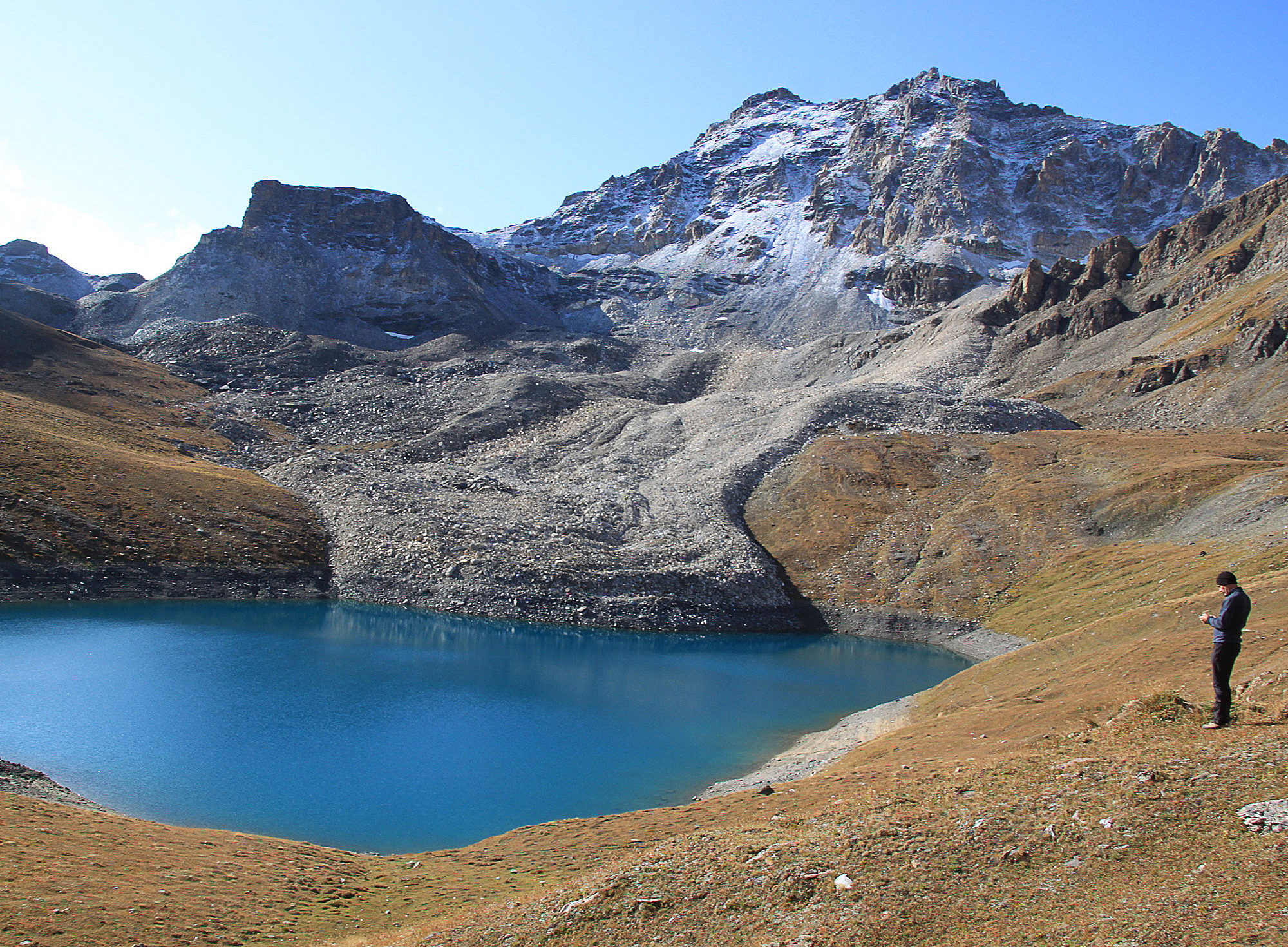Actively creeping rock glaciers can be found in the Alps from an altitude of around 2300 metres above sea level. "As long as their ice content is high enough, these forms of permafrost move downhill," explains Andreas Kellerer-Pirklbauer from the Department of Geography and Regional Science at the University of Graz. He is the lead author of the current publication, in which colleagues from Graz University of Technology, the University of Innsbruck and the Austrian Academy of Sciences are also involved.
The study compares rock glacier velocities across the entire Alpine arc. And these have been increasing overall since the 1990s, even if there have been phases of slowdown in between. "Higher temperatures and more ground moisture accelerate the movement of the interesting debris-ice mixtures. When it gets colder, the speed decreases. But even if the ice content falls below a certain limit and the internal friction increases, the creep rate slows down. If the permafrost ice melts completely, the landform comes to a standstill and becomes a relic landform of the former permafrost expansion," explains Kellerer-Pirklbauer.
For the study, 23 scientists used observation data from France, Italy, Austria and Switzerland from 1995 to 2022 and compared the rock glacier velocity values. "Among other things, the analysis revealed that the westernmost and easternmost of the more than 40 rock glaciers were quite similar in their movement behaviour. This means that they accelerate and decelerate to a similar extent at the same time, even though they are 570 kilometres apart," Kellerer-Pirklbauer reports a remarkable result. "This clearly shows that their speed is controlled by the climate. Our work thus provides profound evidence that rock glacier velocity is a product of the Essential Climate Variable (ECV) Permafrost and critically contributes to the characterisation of Earth's climate," says the researcher. The ECVs were defined by the Global Climate Observing System (GCOS) to provide a picture of climate change on a global scale.
The study authors suggest including more rock glaciers in the long-term monitoring. This data could provide additional valuable information on the effects of the expected evolution of climate.
Publication
Acceleration and interannual variability of creep rates in mountain permafrost landforms (rock glacier velocities) in the European Alps in 1995–2022
Andreas Kellerer-Pirklbauer et al.
Environmental Research Letters, Feb. 2024
DOI 10.1088/1748-9326/ad25a4
